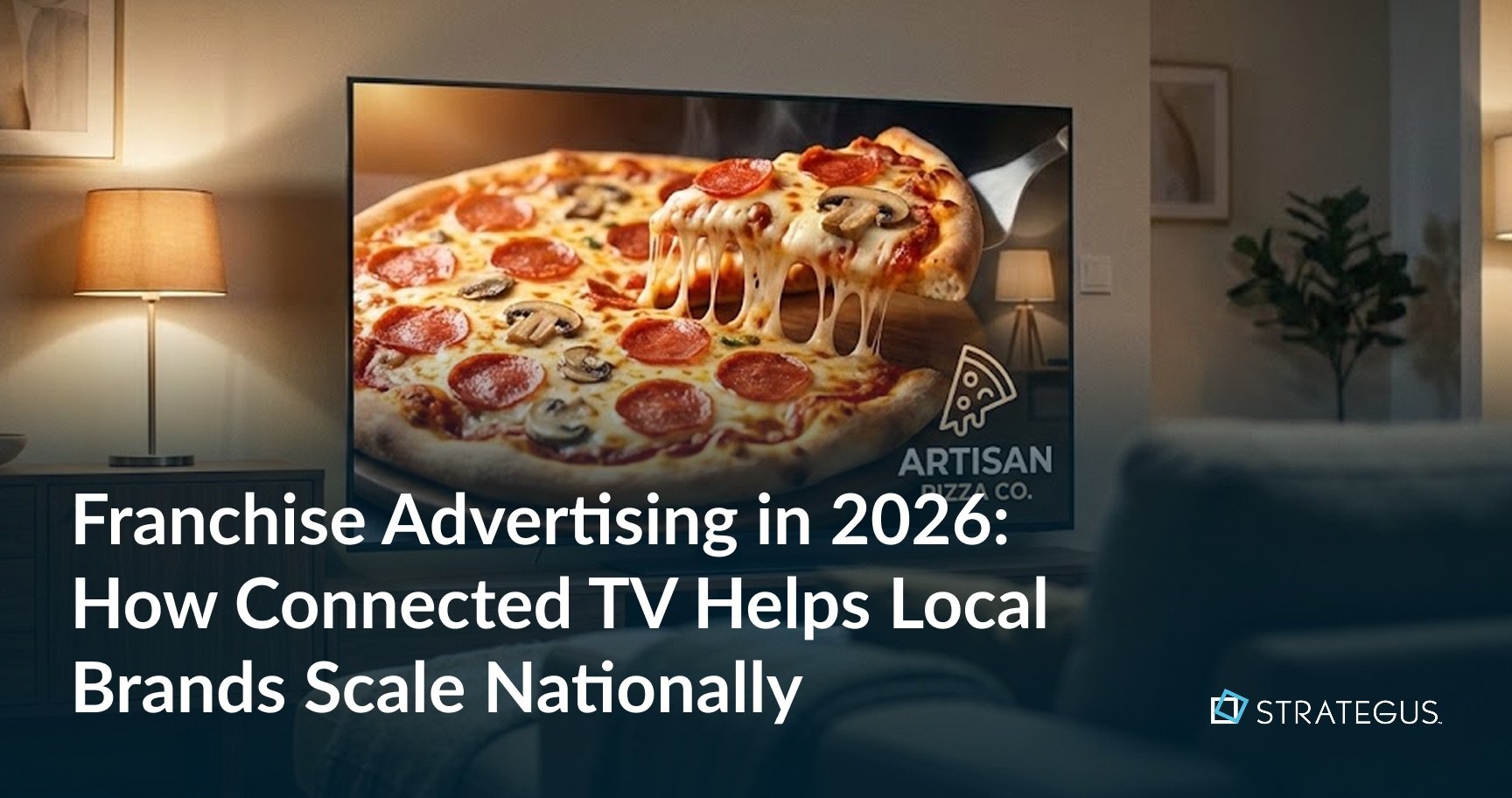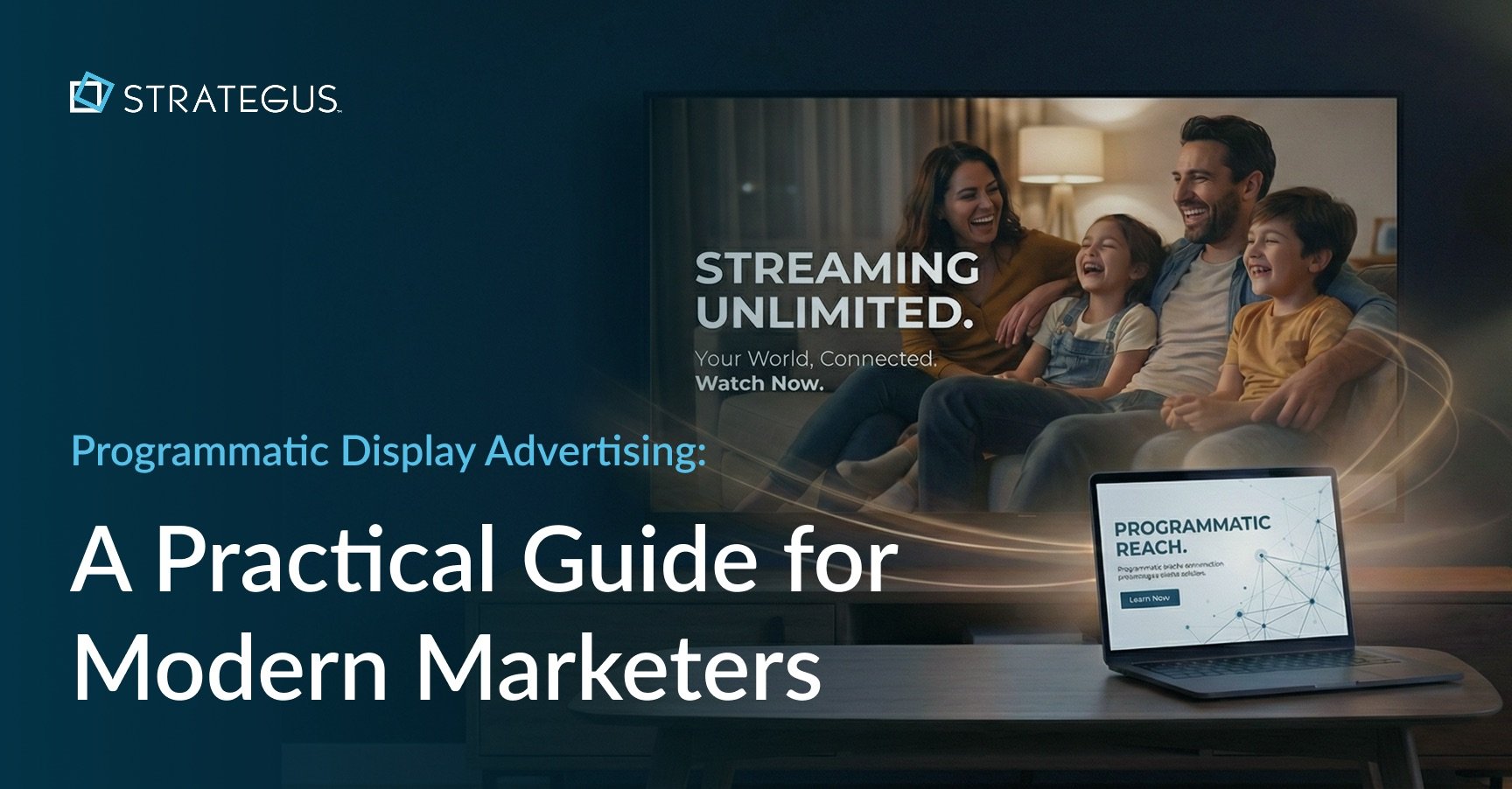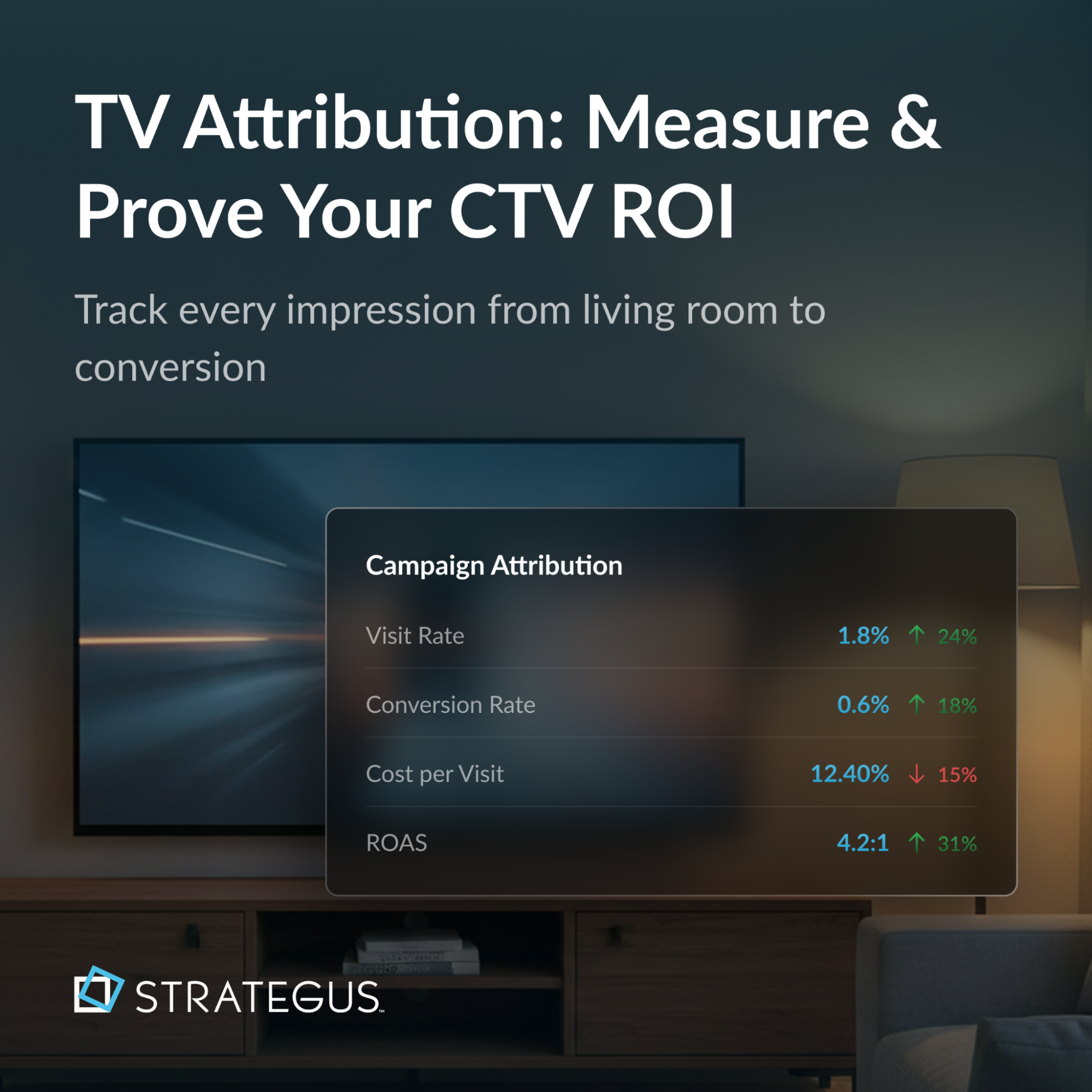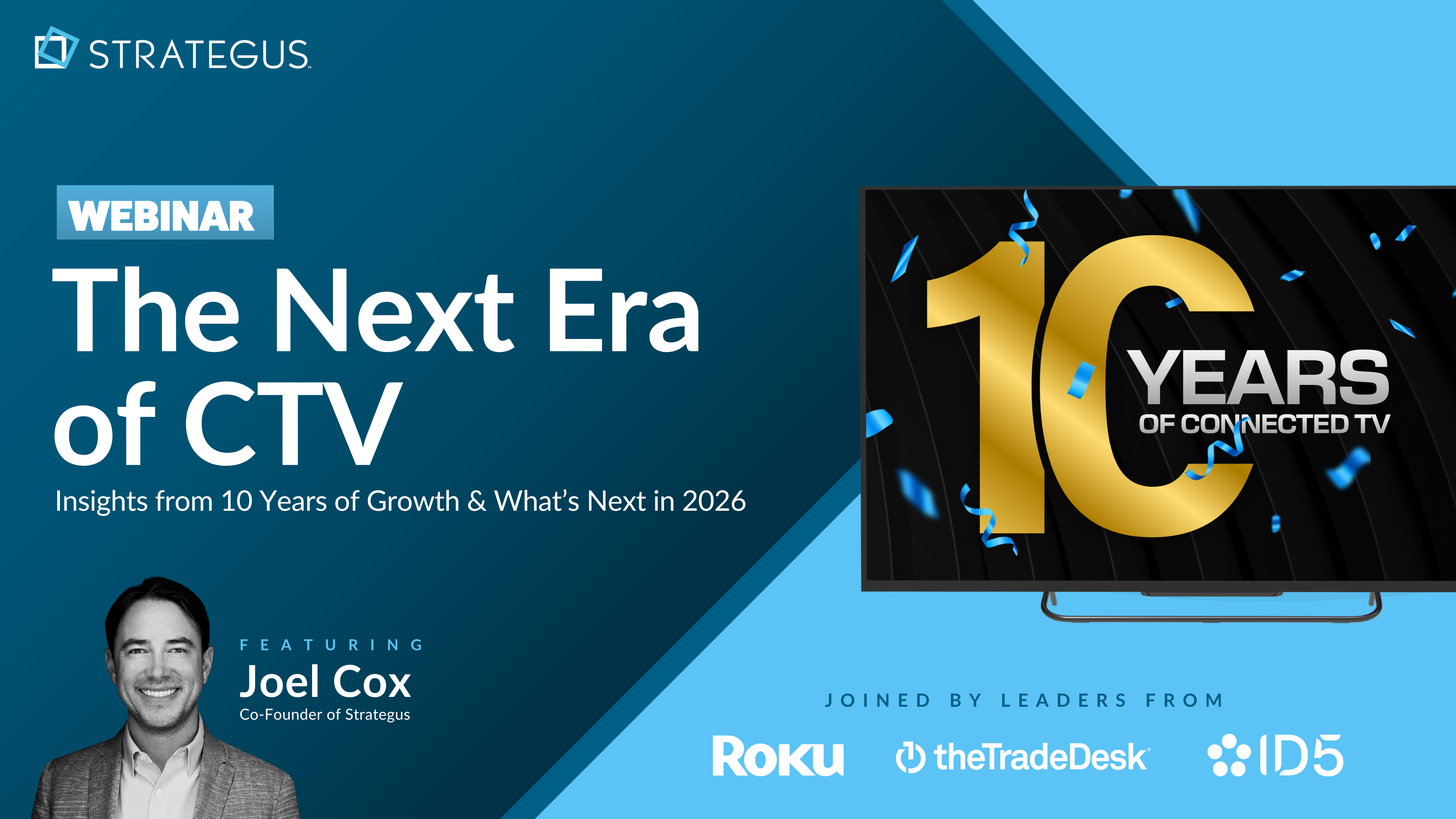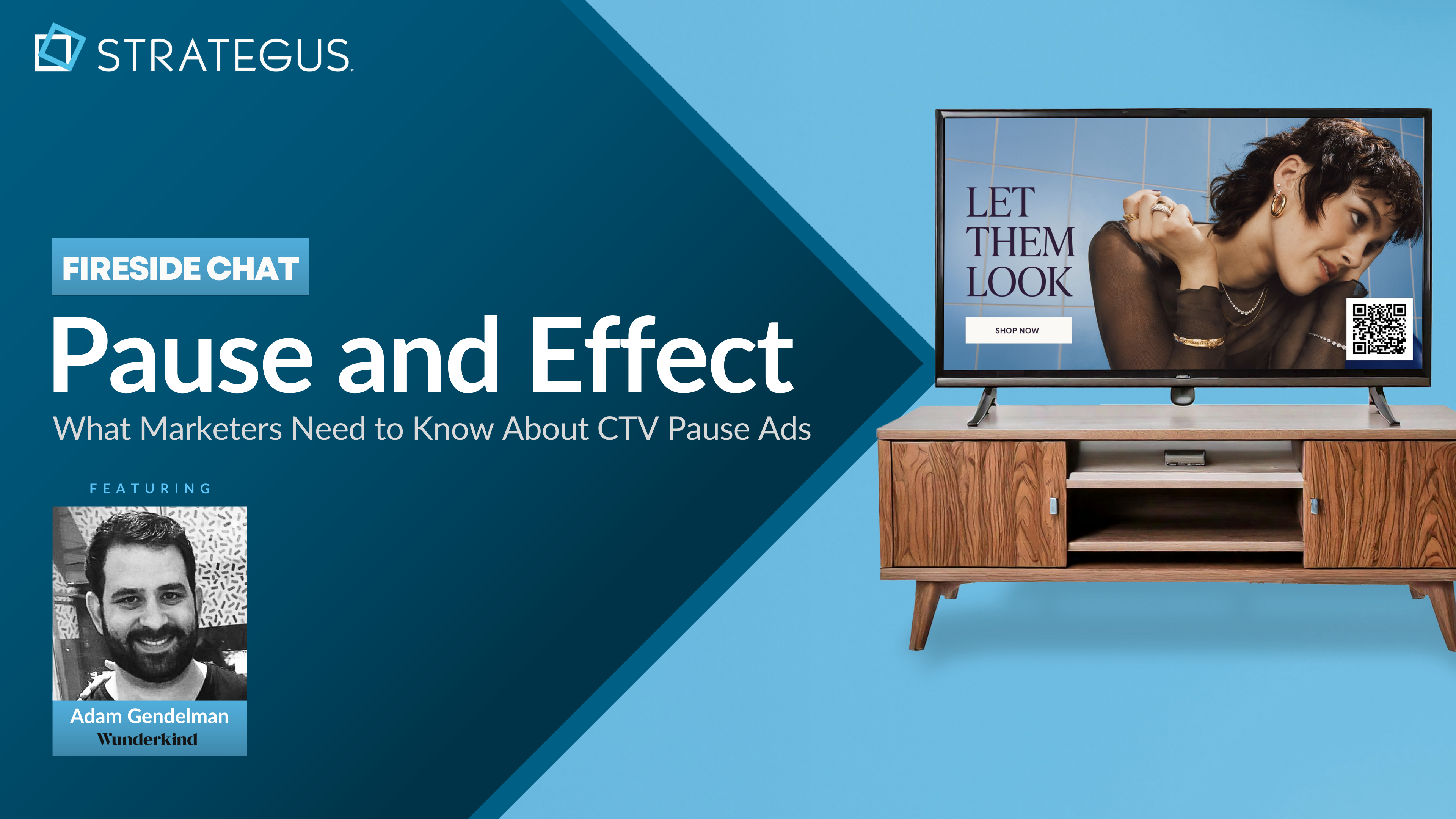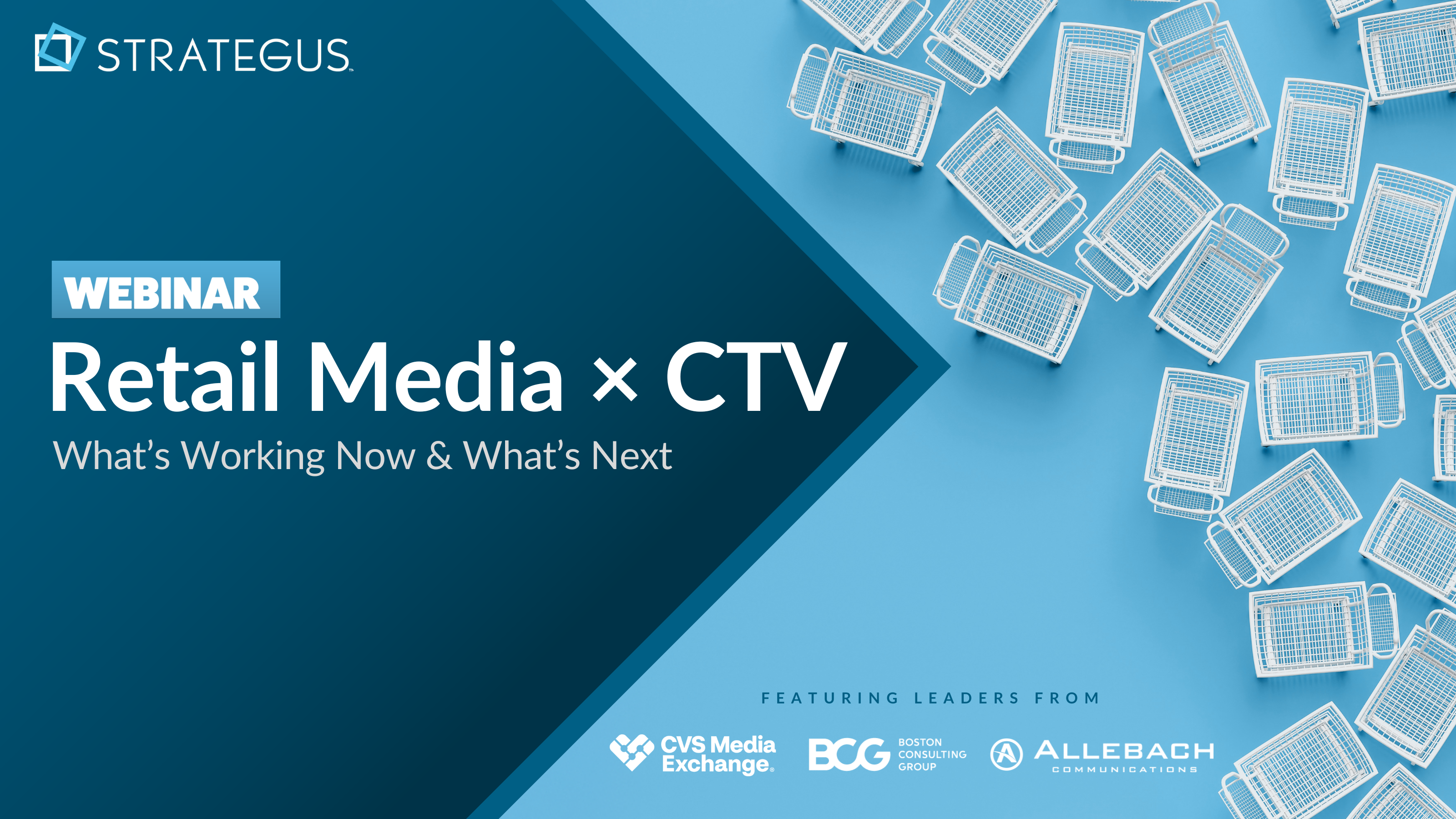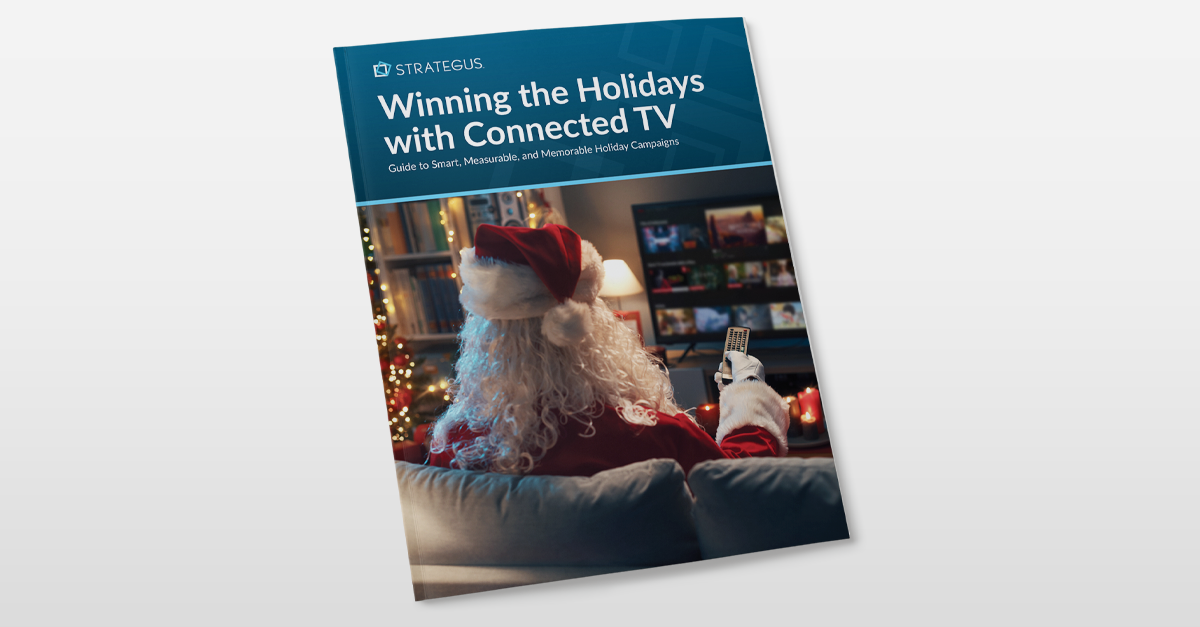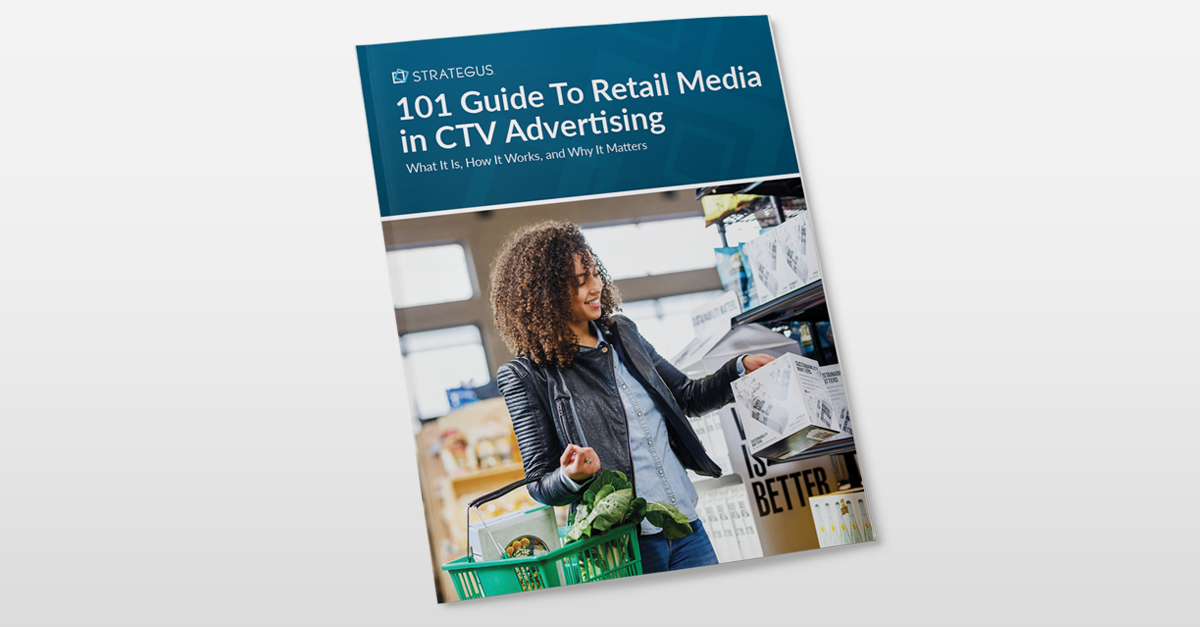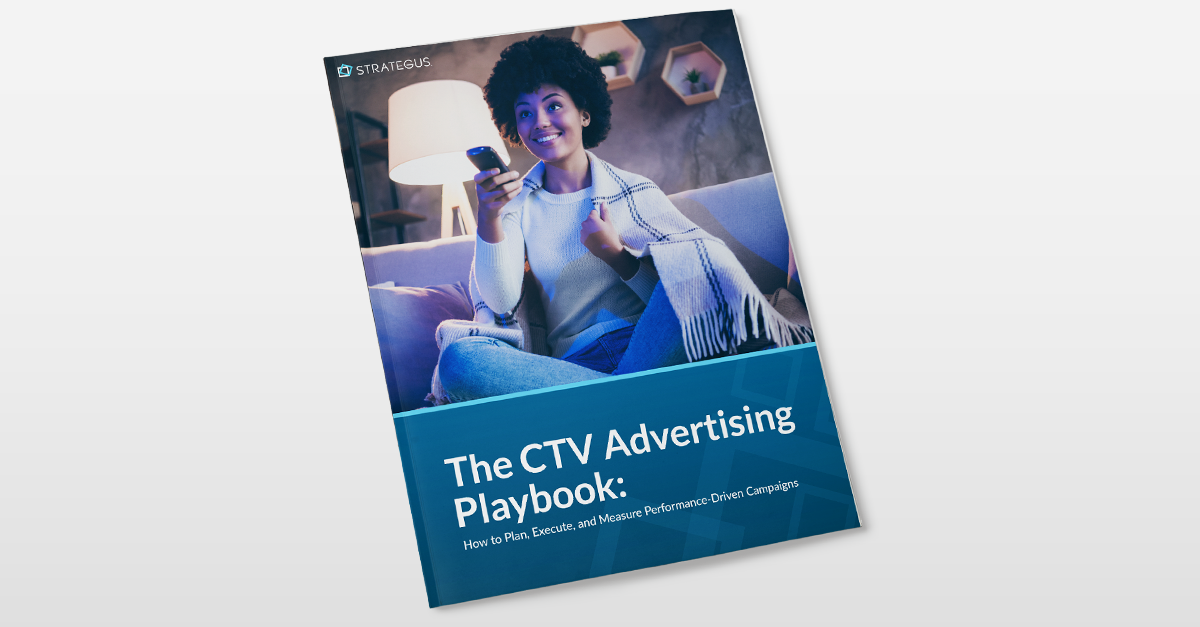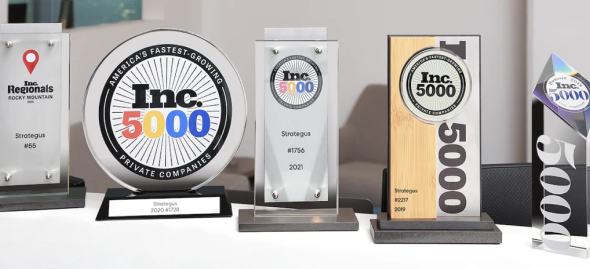- Home
- Strategus Blog
- Does OTT Advertising Work? A Compelling Case Study
Does OTT Advertising Work? A Compelling Case Study
 Andy Dixon
Andy Dixon
8 minutes read

Executive Summary
Strategus was approached by a well known, Oscar-winning independent film studio to stimulate ticket sales for a new film through a targeted OTT advertising effort. What made this OTT campaign so interesting and noteworthy was the way that Strategus was able to connect hyper-local, custom location data from multiple different sources and successfully activate that data into a targeted OTT effort. In the end, we achieved a video completion rate of 95%, a 7-day OTT flight which delivered in full (plus bonus impressions), and most importantly, the campaign helped the film studio achieve their overall goal of increased ticket sales for the film.
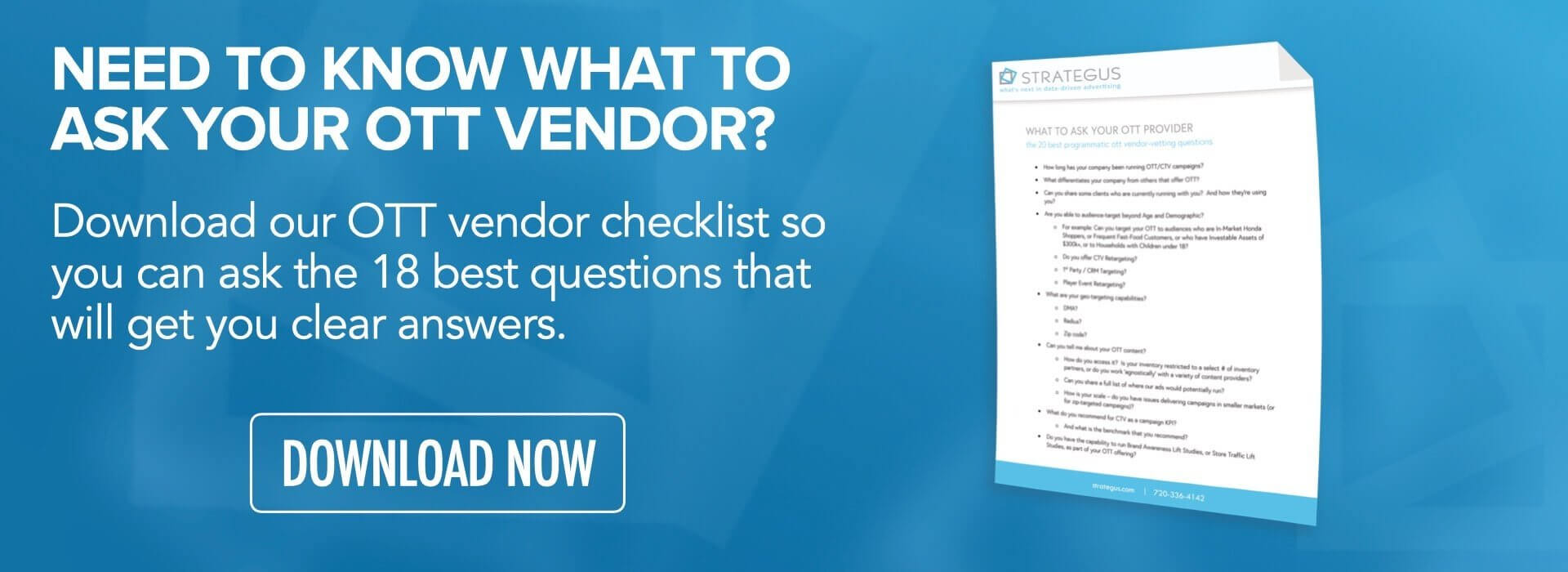
Introduction – A Compelling OTT Campaign
One of the most common questions which we are asked is if OTT advertising actually works. As an emerging channel, advertisers are understandably curious to know how effective OTT is, what OTT can & can’t do, how OTT can be customized, and of course, if an OTT campaign can actually drive meaningful results.
One of the best ways to truly get a sense of what OTT can do is through an example. So, we decided to document a brief case-study from a campaign we recently completed for an independent film studio. The results were wildly successful, and they illustrate just how versatile, customizable, and successful OTT advertising has become.
The Challenge – How to leverage OTT for the film industry?
Strategus was approached by an independent film studio to help leverage OTT advertising for a new and upcoming film which they were promoting. The client has produced multiple Oscar-winning pictures in recent years. The film for which they wanted to use OTT advertising was of the same caliber.
As such, the studio was very well versed with traditional forms of advertising and promotion for a film like this. They had expertise (and would be launching) campaigns in multiple traditional forms of advertising, such as full-page newspaper ads, social media promotion, YouTube videos, PR efforts, paid advertising, and a PR campaign on the well-known film-festival circuit. However, this would be their first foray into an OTT advertising effort. And like so many others new to the platform, they too were curious to see if Strategus could get it to work.
Therefore, our challenge was to help leverage the power of OTT to give them a viable, effective, and innovative new way to promote their films moving forward, using this unique movie as a test case.
The Campaign Goals – Growing Box Office Sales & Proving OTT Works
In order to frame the challenge, we outlined some very specific OTT camping goals which would be our primary focus. We needed to:
- Stimulate box office ticket sales in 70 select theaters within 20 DMAs nationwide.
- Leverage our OTT audience targeting capabilities within the campaign to promote the movie to key audience segments.
- At a higher level, establish a working ‘proof of concept’ for how OTT can be used for the broader film industry as a whole.
The Strategy – Using OTT to Stimulate Box Office Sales
The strategy for this OTT camping was unique and innovative because it involved leveraging data from so many different sources to get incredibly audience focused, all against the backdrop of a hyper-focused local campaign.
Step 1 – Focusing on the right theaters & the right theatergoers
Our strategy began by targeting 70 specific movie theaters across the country. Because this was an independent film, it was important to realize that the audience and theaters which they attend would be very different from a more traditional ‘blockbuster’ sort of movie. I.e. This film wasn’t going to be playing everywhere, so it was crucial to target the right places. In this specific case, the film studio itself was able to provide us with the exact list of theaters they were interested in targeting.
With the list of theaters in hand, the real work began. The question then became, “What is the best way to identify frequent visitors to those theaters, which we can then target with OTT advertising for our film?”
To do this, we drew a polygon around the list of theaters to begin tracking the cellular device IDs of all users who had visited one of those theaters recently. This gave us a list of 1.8 million unique devices who had visited the theater in the last two months. We then further refined the data by layering on an element of people who had visited the theater more than once within that two month time period. The resulting list was a very strong audience pool of known users who frequent the indy theater in which our film would be playing. These would be the folks to target with OTT.
Step 2 – Activating hyper-local data for OTT ad-serving
What made this campaign so unique is that we were able to get hyper-specific with the user data in order to specifically target the identified users with OTT advertising via their in-home devices. Here’s how we did it:
Taking our list of frequent movie-goers, we were able to map device-specific IDs to home IP addresses. We identified a “pack of devices” and then pushed that data into our ad-serving platform. Then, using cross-device ID graphs, we mapped specific devices back to a person’s home IP address. With this information in hand, we then were able to see ALL of the devices connected via that single IP address. This became incredibly impactful to the campaign because we could see all of the OTT enabled devices for a single user who was a known frequenter of our selected movie theaters.
In other words, we now knew exactly what in-home devices to target with OTT ads.
Step 3 – Launching the OTT Ad Spots
With all this information in hand, we were finally able to execute the actual OTT campaign. We delivered a series of 15 and 30-second film previews directly to these devices. This involved rotating five different video units using programmatic CTV placements. We were able to further refine the targeting so that the ads only appeared when the device-specific user was actually at home, thus dramatically increasing our chances of the target user seeing the ads (i.e. not someone else in their household).
This was the next-level of audience-targeting and the real detail that made this campaign unique and innovative. Connecting hyper-local, custom location data by activating it into OTT is very exciting within the OTT landscape.
The Results – Successful Numbers and Important Learnings
The campaign as a whole was a big success and something we are very proud of. Many of our top metrics showed great success.
At the highest level, the overall campaign achieved a video completion rate of 95%. This was well within the industry standard for a campaign like this. We also delivered a complete 7-day flight of OTT-targeted advertising. In fact, we were so successful that we were even able to deliver bonus impressions across the board (more on that below). And all of that was achieved by staying within budget, impression, and scale parameters, while also delivering an even and smooth set of OTT ads the entire time.
Of course, the most important metric (and overall bottom line) is that the film itself saw an increase in attendance and ticket sales. Mission accomplished.
Obviously, those results speak for themselves, and we feel very confident in the contributions the OTT campaign had on the underlying goal. However, beyond just the numbers, it is also important to point out just how successful this campaign was in terms of a smooth, even, and complete delivery of inventory.
Under-delivery is something that traditionally has plagued the OTT industry. Most of our competitors struggle with full delivery because of a limited inventory. It is all too common to either not deliver enough or simply hammer the same people over and over and over again with the same ad. However, for Strategus, neither of these was the case. Our unparalleled inventory and manual monitoring of campaigns ensured a uniform delivery throughout the effort.
This shows that not only do we have the horsepower to execute a complete campaign to a very customized audience, but also we can do so while staying within the pre-set impression, scale, and budget models for the campaign. This is crucial, as we were able to successfully deliver on the campaign goals in the most effective and efficient way possible.
Conclusion – What are the key takeaways from this OTT case study?
As we reflect back on what made this OTT advertising campaign so noteworthy, three key learnings and takeaways come to mind:
First, this worked! What made this effort so unique and cool was Strategus’s ability to not just hone in on an interested audience of frequent theatergoers, but to actually map those users to in-home, OTT connected devices. Making this work was a big point of success on this campaign, and it demonstrates the ever-growing capabilities of OTT as a whole.
Second, this establishes a model for future OTT campaigns, and for many similar efforts in the film industry. Obviously, every OTT effort is unique, but the interconnectedness in this case study is a great proof of concept that can now be easily rolled into similar efforts in the future. The paradigm of OTT as a whole is shifting towards excellent audience-targeting, and this case study is proof of how successful that can be.
And third, this was a campaign which we are very proud of because of the innovative, out-of-the-box thinking which was required. It was a real challenge, but we are proud to have delivered on-time, on-budget, and by using the absolute most advanced technologies available in the industry today.
This is just one example showing how effective OTT advertising has become. Yes, it really does work, and we’re here to provide it. If you would like to find out more examples of this, or learn about OTT in general, connect with Strategus today.
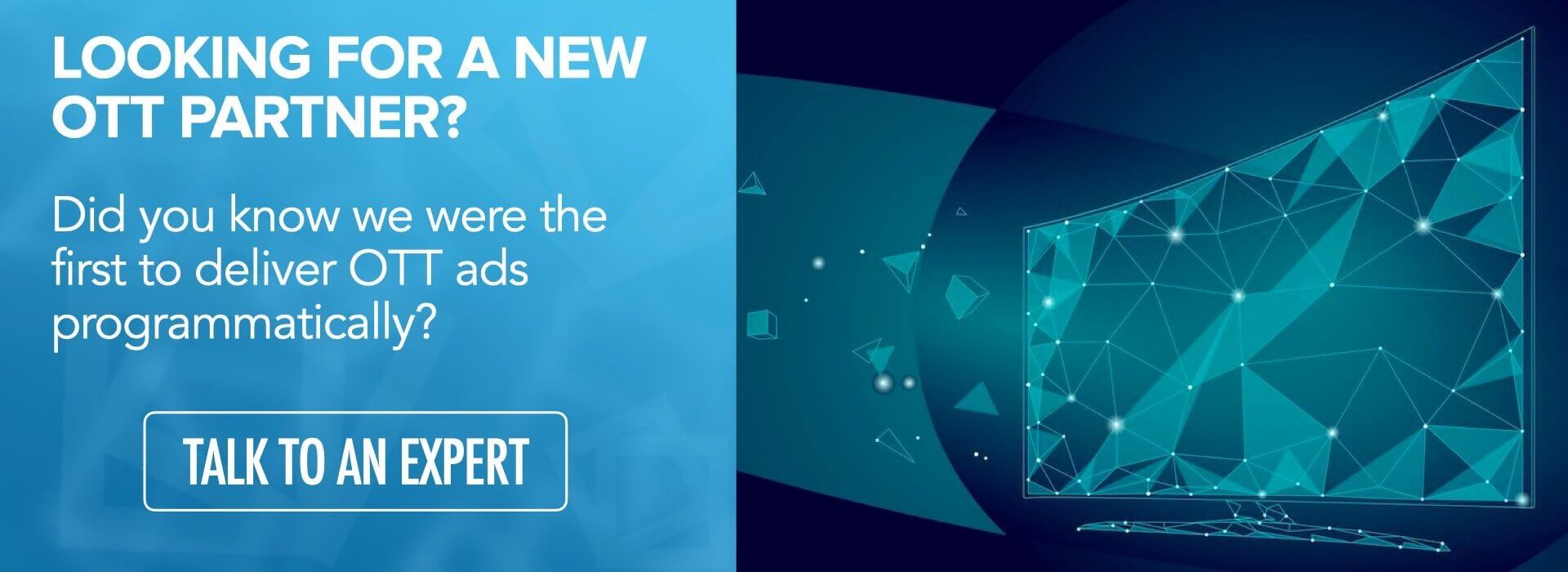

Andy Dixon is a seasoned Content Writing Specialist at Strategus, renowned for his expertise in creating engaging and impactful digital content. With over a decade of experience in content creation, Andy has honed his skills in a variety of niches, ranging from technology and marketing to education.
Strategus is a managed services connected TV(CTV) advertising agency with over 60,000+ campaigns delivered. Find out how our experts can extend your team and drive the result that matter most.
Talk to an Expert
Seeking a Custom CTV Strategy That Delivers?
What to read next

Franchise Advertising in 2026: How Connected TV Helps Local Brands Scale Nationally
Franchise advertising looks simple on paper: the franchisor sets the strategy and runs national-level campaigns, and franchisees support with...
10 minutes read

Programmatic Display Advertising: A Practical Guide for Modern Marketers
Programmatic display advertising is a staple for most marketers. It's familiar, widely used, and often the default choice in digital campaigns. But...
11 minutes read

TV Attribution Explained: How CTV Delivers the Proof Traditional TV Never Could
Traditional TV advertising was a black box. You’d run a campaign, the media plan would look solid, and then… you’d wait. Maybe site traffic ticked...
13 minutes read

What Is Cost Per Acquisition and How Does CTV Fit In?
Marketers have been able to track the cost per acquisition (CPA) across digital channels using tracking pixels and attribution models to determine...
9 minutes read



